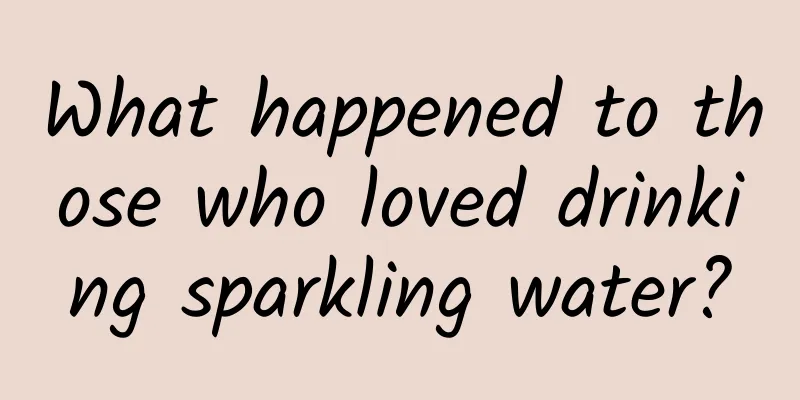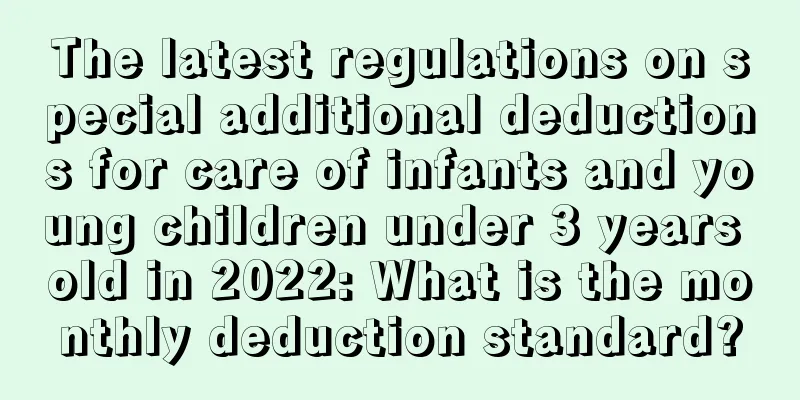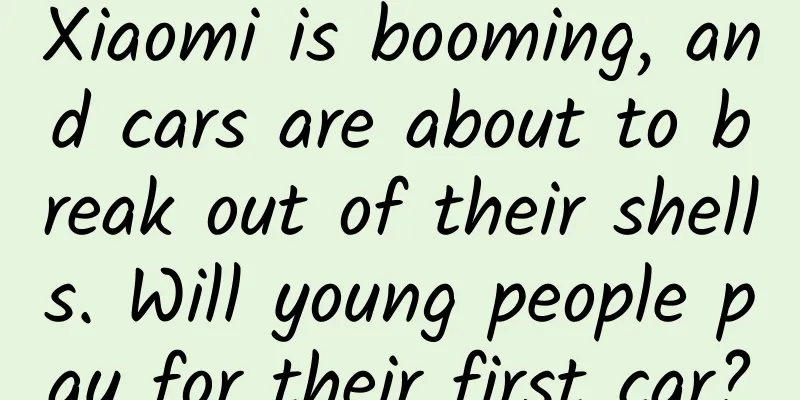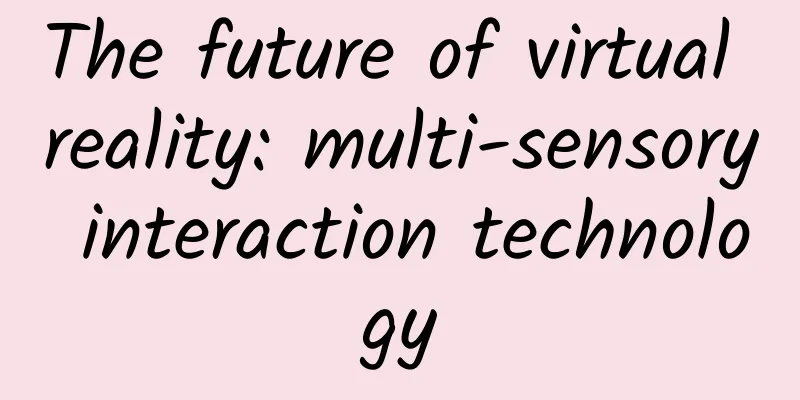What happened to those who loved drinking sparkling water?

|
In recent years, sparkling water has become increasingly popular and has become a daily necessity for many people. Not only can sparkling water serve as a low-calorie substitute for carbonated drinks in terms of taste, allowing you to drink it without any burden, but it can also serve as a synonym for healthy sugar reduction that is "light, fashionable" and "high-quality" in terms of lifestyle. The picture comes from the Internet In addition, in recent years, businesses have launched a variety of sparkling waters with rich tastes, making it impossible for people who are not used to the taste of sparkling water to refuse it, and it has directly become the most popular item this summer. Let’s talk about sparkling water today. What are the bubbles in sparkling water? Sparkling water is divided into natural bubbles and artificial bubbles. The bubbles in naturally produced sparkling water are formed by ice in the permafrost under the compression of external force and contain trace amounts of natural minerals. The water source naturally contains steam. When taking water, the water and bubbles are first separated artificially. After purification, the bubbles bred in the mother's womb are artificially pressed back. Artificially produced sparkling water is made by pumping carbon dioxide gas into water under high pressure. Copyright images in the gallery. Reprinting and using them may lead to copyright disputes. The price of natural sparkling water is much higher than that of artificial sparkling water. However, no matter which type it is, unflavored sparkling water is actually water with carbon dioxide added. It is just because of the bubbles that it enriches its taste and makes you feel better than water. For those who don't like to drink water, you can choose to drink sparkling water to increase your desire to drink water. Some people feel a "tingling" sensation when drinking sparkling water. This is because sodium is usually added to sparkling water to enhance the flavor of the water. However, more people like to drink sparkling water because of its "healthy" label. Many young people choose to give up high-calorie carbonated drinks when losing weight, but they can't give up the taste of the drinks, so they choose sparkling water instead. Not only can they reduce the sense of guilt, but they can also get the taste of happy water, killing two birds with one stone. But in reality, how many of the health claims related to sparkling water are actually true? Sparkling water = healthy and happy water? 1 Can sparkling water increase satiety? A lot of relevant research has been carried out both at home and abroad on this issue. According to a controlled experiment on 19 healthy young women, the results found that the female subjects who drank sparkling water did increase their sense of fullness. Another animal experiment in Palestine found that male mice that drank carbonated water had increased levels of ghrelin, which made them more likely to eat more food. A subsequent small human experiment at Aston University in Birmingham, England, also found that people who drank carbonated drinks consumed 120 more calories than those who drank still drinks, and their ghrelin concentration was 50% higher than other groups. However, the experts and scholars who led these studies also pointed out that the experimental sample size of these studies was too small and the conclusions were for reference only. If these research results need to be supported, large-scale human experiments and further clinical verification are needed to prove them. Copyright images in the gallery. Reprinting and using them may lead to copyright disputes. However, a Japanese research experiment pointed out that drinking 250 ml of sparkling water can release 900 ml of gas. Sparkling water can indeed enhance the "feeling of fullness", but not the kind you think. Sparkling water is rich in carbon dioxide gas, which will produce a feeling of fullness after entering the stomach, and easily send a false "full" signal to the brain. However, this feeling of fullness is very short-lived and unreal, a bit like the feeling of "gas coming back after drinking Coke". Once this "gas" disappears, you will still be hungry. For those who are on a diet, if they want to deliberately increase their sense of fullness and reduce their intake during meals by drinking sparkling water at mealtimes, it is likely to be counterproductive. When the "gas" of the sparkling water disappears after entering the body, it may stimulate you to eat too much, greatly increasing your risk of overeating. Instead of drinking sparkling water before or between meals to "trick the brain" into reducing intake, it is better to drink it after meals to prolong the body's feeling of fullness, which may actually work. 2 Can sparkling water improve constipation? Yes, but there are conditions. A study of 21 people with chronic digestive problems found that after a 15-day control experiment, those who drank sparkling water had improved constipation. This is because the carbonic acid in sparkling water can stimulate the gastric mucosa and promote gastrointestinal motility, so it can relieve constipation symptoms. Copyright images in the gallery. Reprinting and using them may lead to copyright disputes. However, it should also be pointed out that although the "gas" in carbonated water can stimulate intestinal peristalsis and relieve constipation to a certain extent, it can also reduce food intake due to bloating. If there is not enough food residue in the intestine, gas alone can accelerate intestinal peristalsis and cannot complete defecation. Especially for people who already have weak gastrointestinal function, drinking sparkling water frequently can easily cause gastrointestinal bloating, so it is best to drink less. Can sparkling water harm your teeth? Phosphoric acid and citric acid in carbonated drinks do damage the enamel of teeth, but carbonated water contains almost no phosphoric acid. In addition to carbon dioxide gas, carbonated water also contains natural minerals and trace elements such as potassium, sodium, calcium, and magnesium. It can be said to be a mineral-rich mineral water. Generally speaking, tooth enamel will begin to dissolve in an environment with a pH value below 5.5. The pH value of carbonated water is about 5-6, which is weakly acidic and not low enough to erode tooth enamel. Its corrosive effect on teeth is only 1% of that of carbonated beverages. As long as citric acid and sugar are not added, the impact of sparkling water on teeth is almost negligible. What can really affect dental health are carbonated drinks such as cola and Sprite that contain sugar, phosphoric acid and citric acid. If you are really worried, you can drink sparkling water through a straw, or rinse your mouth immediately after drinking sparkling water. Does sparkling water cause osteoporosis? In addition, although some studies have shown that drinking carbonated beverages is associated with a decrease in bone mineral density, according to a study in the American Journal of Clinical Nutrition, among carbonated beverages, only cola is associated with a decrease in bone density (due to the effects of caffeine and phosphoric acid), but carbonated water generally does not contain such substances. Therefore, drinking carbonated water frequently will not cause osteoporosis or bone calcium loss. References [1] Tan Shuang. The popularity of sparkling water[J]. Successful Marketing, 2015(05):76-77. [2] Does drinking sparkling water help you lose weight? The nutritional value is equivalent to that of mineral water! Guangzhou Daily, 2019-8-8 [3] Is sparkling water really harmful to health? BBC, September 25, 2015 [4] Zhang Yahui. Is drinking sparkling water healthier and less harmful to your teeth? The benefits and myths of sparkling water, HELLO Doctor, 2021 [5] Urban young people prefer "sparkling water for health", experts: beware of health traps. Yangtze River Daily, 2022-6-6 [6]Franziska Spritzle.Carbonated (Sparkling) Water: Good or Bad?healthline,February 24, 2023 Planning and production Author: Zhong Yike, popular science creator Reviewer: Zhang Na, Associate Researcher, Doctoral Supervisor, Peking University School of Public Health Ruan Guangfeng, Deputy Director of Kexin Food and Health Information Exchange Center Planning丨Yang Yaping Editor: Yang Yaping The cover image and the images in this article are from the copyright library Reprinting may lead to copyright disputes |
<<: A well-known singer died of illness. What is the culprit, "melanoma"?
>>: Is the weather forecast always a lie? AI makes the weather more predictable
Recommend
Juyi Thinking's most profitable project on Douyin in 2021, Oral Broadcast Number 1.0
【Juyi Thinking】The most profitable project of Dou...
Apple's "calling in the rain" ad sparks controversy, but is still a good one
Apple 12’s waterproof advertisement has become po...
If you feel feverish or dizzy after eating broad beans, don’t be careless and be alert to “favism”!
Review expert: Mao Xinmei, Chief Physician of Ped...
Baidu search oCPC optimization skills
We know that the threshold for big search oCPC is...
The 2019 Top 100 Most Valuable Chinese Brands Released (Full List)
Top 100 Most Valuable Chinese Brands in 2019 (Com...
Oil lives in a nanoscale "bedroom"? Let's take a look at the "close-up" of shale magnified a million times
The Daqing Oilfield core library is filled with n...
Detailed explanation of the 618 e-commerce activity plan!
Today we are going to talk about how to implement...
How much does it cost to join a photography mini program in Tangshan?
How much does it cost to join a photography mini ...
How to make an offline event promotion and operation plan?
This article is not only suitable for online even...
Kuaishou APP operation and promotion skills!
Almost two months ago, the editor launched a poll...
What are the benefits of adding Baidu framework users to the public?
Friends who have opened an account know that Baid...
The secret of high-end brands to gain high exposure and high conversion!
There is a famous saying in the traditional adver...
A perfect event planning solution cannot be without these elements!
Do you hope that the event will become a hit? Tha...
Reno: OPPO's new breakthrough, the side-rotating camera is just the beginning of surprises
As an electronic consumer brand dedicated to maki...
A mobile phone reflects the great power dream of "Made in India" and the globalization of "Chinese factories"
If Indians don’t work harder, Mumbai will be surp...




![[Smart Farmers] Omnivorous "Big Eater" - Beet Armyworm](/upload/images/67f241d6469f6.webp)




